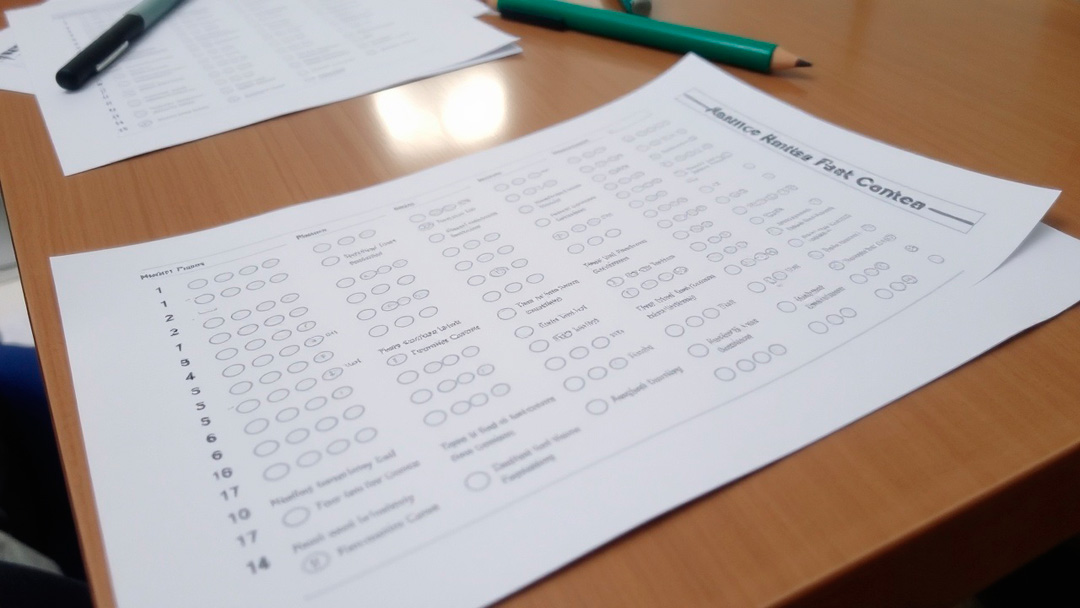B1 English Level Test Online: Check Your Intermediate Level
About the B1 level English test

Would you like to know what your assessment in the English language at the B1 level is? Then, this thorough guide is absolutely all you need to know and understand in preparation for the B1 Level English Test.
Be it an intermediate learner of the language or a candidate intending to take up the B1 Preliminary exam; the worthiness of reading the article isn't debatable.
We shall take you through the test structure, give some tips on how to prepare, and explain why getting a B1 level is such an important step in your English language journey.
What is the B1 Level English Test?

The B1 Level English Test is an examination designed to test your ability in the English language, covering situations very often encountered in everyday life, general conversations, and the use of English for any purpose whatsoever. You will be assessed on reading, writing, listening, and speaking through exercises that involve several tasks.
Why is the B1 Level English Test important?
Obtaining a B1 level in English opens up many possibilities and helps you find new opportunities.
It proves that a person has acquired the language needed to communicate in an elementary way in most situations of everyday life and many professional processes.
Many academic institutions, employers, and immigration agencies recognize the level of B1 as a minimum requirement.
By achieving this level, you increase your chances of successfully competing in the labor market and getting any type of education. In general, you improve your language.
Preparation for the B1 Level English Test

The preparation for the B1 Level English Test should be done systematically. Here are the steps to help you in your preparation:
- Get familiar with the structure of the test and the requirements.
- Regular practice with the resources available online and practice tests.
- Improve your grammar and build up your vocabulary.
- Practice conversations with English speakers or other learners.
- Seek guidance from experienced English language teachers or tutors.
- Set realistic goals and make a study plan.
- Take complete advantage of language learning apps and platforms.
Tips for Taking the B1 Level English Test to enhance your English skills.
Following are some tips which can help you do well in the B1 Level English Test:
- Read the instructions given to perform each task.
- Manage your time effectively during the test.
- Pay attention to grammar and usage of vocabulary.
- Practice active listening and note-taking.
- Clearly and logically express your ideas in writing and speaking tasks. Check your answers before submitting.
- Keep calm and confident during the test.
Understanding of the results of your B1 Level English Test
After taking the B1 Level English Test, you will be given a score indicating your proficiency in the language. This gives you insight into where you are concerning your present level of English and what needs improvement to advance your English skills. Specific performance charts may further break down the result into the details of reading, writing, listening, and speaking.
Knowing your result, therefore, will give you a very clear picture with regards to strengths and weaknesses, enabling you to zero in on specific areas for improvement in the language.
Enhancing your knowledge of English beyond the levels of B1

While it is an achievement to attain a B1 level of language, a person should never stop his or her language development after he or she reached that level. Following are some strategies to further enhance your command regarding English:
- Practice immersive language exposure, such as watching a movie or TV series in English, to enhance your English skills.
- Reading books, articles, and newspapers will help in enhancing your vocabulary and comprehension.
- Practice speaking in real situations or via language exchange.
- Attend some higher-level English classes or language schools that help to perfect your skills.
- Keep practicing through online resources and language learning mobile apps.
Online resources for B1 Level Test English Test preparation
Preparation for the B1 Level English Test is becoming easier than ever, with a raft of resources available on the internet. Here are some of the most popular websites and platforms that offer practice tests or preparation materials for the B1 Level English Test:
- Testizer.com: Free online practice tests for the B1 Level English Test.
- Cambridge English : Official preparation materials with practice tests.
- B1 Level English: Comprehensive online course designed for B1 level preparation.
- English Grammar Online Grammatical explanations and exercises for B1 level students.
Grammar and Vocabulary in B1 Level English Test

Grammar and vocabulary are the two major elements of the B1 Level English Test. The rules of grammar and their proper usage must be accurately known in advance. The test will verify your knowledge about different grammatical structures, like tenses, prepositions, and sentence formation. In the same vein, rich vocabulary will enable you to express yourself with precision and fluency. Pay greater attention to improving your grammar and vocabulary to ace this test.
Common mistakes to avoid while attempting the B1 Level English Test
Certain very common mistakes have been recurrently or predominantly made by the candidates while taking the B1 Level English Test, which can affect their overall English level. Some of those are:
- Misinterpretation of the instructions can lead to significant mistakes during the test-english.
- Neglecting planning and organization in writing.
- Not managing your time well during the exam.
- Overuse of some words or phrases.
- Failing to proofread your written responses.
- Not engaging in active listening during the listening tasks.
Frequently Asked Questions about the B1 Level English Test
How long does the B1 Level English Test take?
The time length of every test varies, but it is usually in the range between 1 hour and 30 minutes and 2 hours and 30 minutes, depending on the specific test-english format.
Can the B1 Level English Test be taken online?
Yes, there are some online versions of the test available which you take from the comfort of your house.
Is this B1 Level English Test only for academics?
The B1 level English test is not focused for an academic, professional or personal purpose.
Can we retake the B1 Level English Test if I am not happy with the marks I get in it?
What is true though is that yes, you can retake the test if you so choose to attempt to improve your score.
Summary: How your English Skills were measured on the B1 Level English Test
The English Test at the B1 Level is created in such a way so it can test the proficiency of the applicant in English at the intermediate level. It’s important to get to a level, like B1, for academic, professional, and personal development.
Preparation involves learning the pattern of the test, practising the tests again and again and mastering ones’ grammar and vocabulary.
These are some test taking tips: Read the instructions carefully, manage your time wisely, and communicate your ideas clearly. Additionally, you’ll gain an understanding of areas that you need to work on.
English is not to be learned beyond the level of B1, it requires continuous practice and immersion if we want to get further, to higher CEFR levels, for example.
There are possible online resources preparation such as Testizer, Cambridge English, and B1 Level English, that will benefit you in obtaining the English level. The B1 level of English is a test on the grammar and on the vocabulary.
Learn how to stay away from common mistakes like not reading the instructions and waste use of time. If you haven’t reviewed frequently asked questions about test duration, online availability and retest policy, these can be further explained to help you decide which preparation method will work best for you.
Do not forget to keep yourself consistent, motivated, and focused on the aim for which you are preparing: They’re very important to achieve your English level goals, because they apply to your language learning goals.
With this comprehensive guide you’re all set for the preparation of the B1 Level English Test.